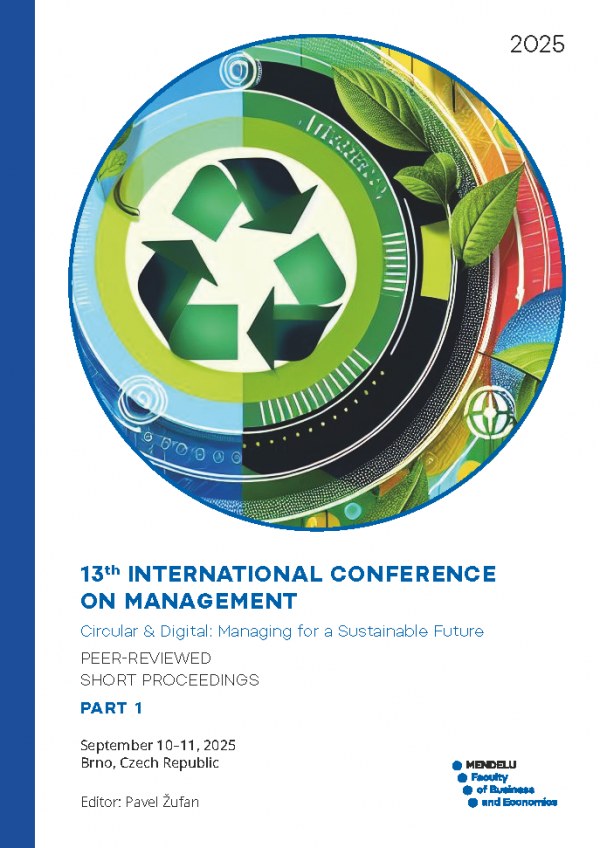
DOI: 10.11118/978-80-7701-042-9-0052
FROM COMPLIANCE TO RESILIENCE: ESG REPORTING AS STRATEGIC IMPERATIVE IN HOSPITALITY
- László Péter Juhász1, Anna Dunay1
- 1 John von Neumann University Doctoral School of Management and Business Administration, Budapest, Hungary
The Hungarian hospitality sector is transitioning ESG reporting from mere compliance to a strategic imperative for long-term resilience. While complex EU regulations present substantial operational challenges (data, standards, SME resources, value chain complexity), their primary role is catalytic, driving sustainability into core business strategy. These challenges are inherently linked to strategic opportunities, highlighted the „trickle-down“ effect demanding ESG engagement from businesses of all sizes throughout the value chain. Effectively managing ESG performance, supported by data, technology, collaboration, and suitable frameworks is thus fundamental for competitiveness, brand value, investment attraction, and adaptability. For the Hungarian hospitality sector, transforming ESG compliance demands into strategic insights is the pathway to enduring resilience and sustainable value creation.
Keywords: environmental, social, governance (ESG), hospitality industry, sustainability
pages: 52-53, online: 2025
References
- Eccles, R. G., Ioannou, I., Serafeim, G. 2014. The Impact of Corporate Sustainability on Organizational Processes and Performance. Management Science. 60(11), 2835-2857.
 Go to original source...
Go to original source... - Nader, N. 2024. The indirect impact of the CSRD on SMEs. enhesa [Accessed: 2025-04-05]. https://www.enhesa.com/resources/article/indirect-impact-of-csrd-on-smes/
- European Commission. 2025. Communication - Amending Directives (EU) 2022/2464 and (EU) 2024/1760 as regards the dates from which Member States are to apply certain corporate sustainability reporting and due diligence requirements ("Omnibus"). COM(2025) 80 final. European Commission, Brussels. https://eur-lex.europa.eu/legal-content/EN/TXT/?uri=CELEX:32022L2464
- European Financial Reporting Advisory Group. 2023. European Sustainability Reporting Standards (ESRS). Brussels: EFRAG. https://www.efrag.org/en/sustainability-reporting
- Shalhoob, H., Hussainey, K. 2023. Environmental, Social and Governance (ESG) Disclosure and the Small and Medium Enterprises (SMEs) Sustainability Performance. Sustainability. 15(1), 200.
 Go to original source...
Go to original source... - Marriott International. 2025. Serve 360: Doing Good in Every Direction (Corporate ESG Strategy and Reporting Platform). [Accessed: 2025-04-05]. https://serve360.marriott.com/
- Ñañez-Silva, M., Quispe-Calderón, J., Huallpa-Quispe, P., Larico-Quispe, B. 2024. Analysis of academic research data with the use of ATLAS.ti. Experiences of use in the area of Tourism and Hospitality Administration. Data and Metadata. 3, 306.
 Go to original source...
Go to original source... - Proskauer Rose LLP. 2025. CSRD Slashed: EU's Corporate Sustainability Regulations Significantly Reduced. Proskauer Client Alert.
- Wang, C., Zhang, T., Tian, R., Wang, R., Alam, F., Hossain, Md. B., Illés, B. Cs. 2024. Corporate Social Cesponsibility's impact on passenger loyalty and satisfaction in the Chinese airport industry: The moderating role of green HRM. Heliyon. 10(1), e23360.
 Go to original source...
Go to original source...


